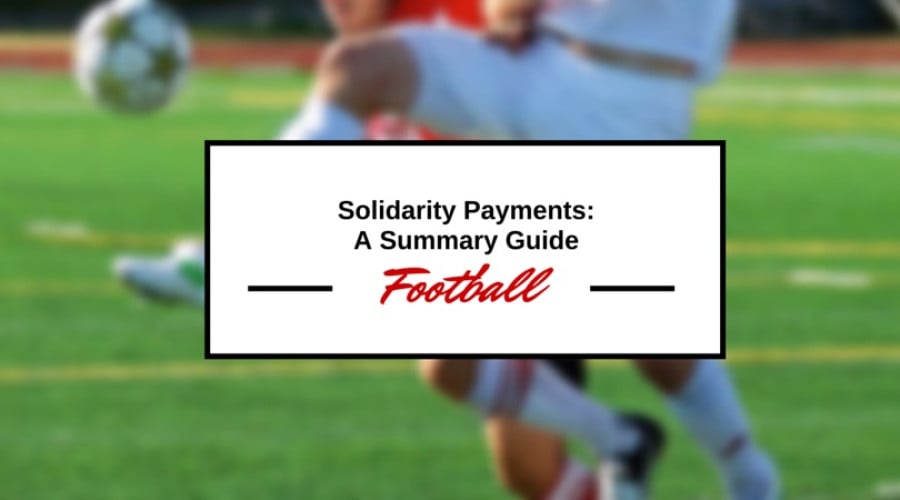A guide to solidarity payments in football under the FIFA Regulations

This article considers the operation of Article 21 of the FIFA Regulations on the Status and Transfer of Players (RSTP)[1], which provides as follows:
“If a professional is transferred before the expiry of his contract, any club that has contributed to his education and training shall receive a proportion of the compensation paid to his former club (solidarity contribution). The provisions concerning solidarity contributions are set out in Annexe 5 of these regulations.”[2]
This summary guide addresses the following issues regarding solidarity payments:
-
The extension of the solidarity payments regime to certain domestic transfers.
-
What solidarity contribution is payable, to whom and in what proportions?
-
Can clubs agree who shall bear the financial burden of the solidarity contribution?
-
Loan agreements.
-
‘Cash plus player’, or ‘player swap’ deals.
-
‘Buy out’ clauses.
-
The timeframe for making solidarity payments.
-
Disputes regarding solidarity payments.
-
Key takeaways
To continue reading or watching login or register here
Already a member? Sign in
Get access to all of the expert analysis and commentary at LawInSport including articles, webinars, conference videos and podcast transcripts. Find out more here.
- Tags: Court of Arbitration for Sport (CAS) | Employment Law | FIFA | FIFA Dispute Resolution Chamber | FIFA Regulations on the Status and Transfer of Players | FIFA Training Compensation System | FIFA's International Transfer Matching System (TMS) | Football | Governance | Regulation | Training Compensation
Related Articles
- The on-going football dispute over training compensation and player loans: Panionios -v- Parana
- Key case law on attempts to circumvent FIFA’s Training Compensation System
- The on-going football dispute over training compensation and player loans II: Dundee Utd -v- Club Athletico Velez
- Football’s International Loan regulations: the ‘Wild West’?
Written by
Andrew Smith
Andrew is a barrister practising from 11KBW in London. He is ranked as a leading sports and employment law barrister by Chambers & Partners and Legal 500.




